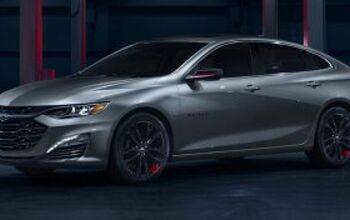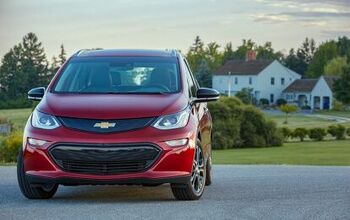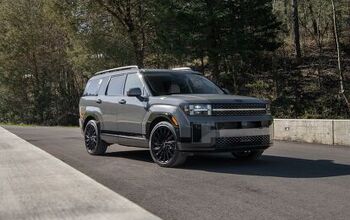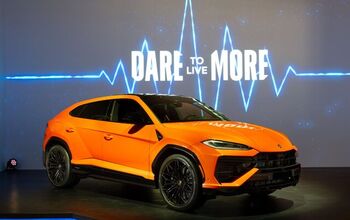GM Replacing Battery Modules On Recalled Chevy Bolts

The Chevrolet Bolt has become the focus of negative attention following some fire incidents that were believed to be related to battery components. After two recalls, General Motors has decided to replace the battery modules of every model that could be impacted — rather than focusing on units with proven defects.
While it’s undoubtedly going to cost the company a fortune, this is probably the correct move. The implications of negative publicity stemming from repeat vehicle fires have a tendency to linger and be blown up to larger-than-life proportions. This is especially true if an automaker rushed that vehicle to market to better wrangle the segment. Just ask Ford about the Pinto if you’ve any doubts.
GM’s previous solution involved simply updating the software of all 2017-2019 model year Bolt EVs. However, one of those vehicles also caught fire and forced the automaker to double down on its recommendations to have Chevy customers park their cars outdoors a healthy distance from anything they might not want to see barbequed. Charging protocols were also issued, with owners being warned not to fully deplete the battery.
It also threw its supplier under the bus, citing South Korean manufacturer LG Chem’s Ochang facility in South Korea as having issued bunk hardware. Though LG has received additional criticism from other automakers who’ve used its batteries only to find themselves issuing fire-related recalls of their own (e.g. Hyundai).
The supplier has said it’s onboard to help General Motors to ensure recall efforts are carried swiftly and that the duo had jointly identified two manufacturing defects (claimed to be rare) that caused the fires. Those modules will no be replaced, without the need for the automaker to conduct an investigation of every vehicle. Customers can bring their vehicles to any GM service center for repairs, though it will need to be EV-certified to handle this particular recall.
In the meantime, it’s still recommending owners park their Bolts outdoors and charge them after each use to avoid having to keep them plugged in for longer than absolutely necessary. Ideally, the manufacturer doesn’t even want you to leave them unattended while charging. The software update is also supposed to be helpful, though it doesn’t seem to have been an effective remedy overall.
[Image: General Motors]

A staunch consumer advocate tracking industry trends and regulation. Before joining TTAC, Matt spent a decade working for marketing and research firms based in NYC. Clients included several of the world’s largest automakers, global tire brands, and aftermarket part suppliers. Dissatisfied with the corporate world and resentful of having to wear suits everyday, he pivoted to writing about cars. Since then, that man has become an ardent supporter of the right-to-repair movement, been interviewed on the auto industry by national radio broadcasts, driven more rental cars than anyone ever should, participated in amateur rallying events, and received the requisite minimum training as sanctioned by the SCCA. Handy with a wrench, Matt grew up surrounded by Detroit auto workers and managed to get a pizza delivery job before he was legally eligible. He later found himself driving box trucks through Manhattan, guaranteeing future sympathy for actual truckers. He continues to conduct research pertaining to the automotive sector as an independent contractor and has since moved back to his native Michigan, closer to where the cars are born. A contrarian, Matt claims to prefer understeer — stating that front and all-wheel drive vehicles cater best to his driving style.
More by Matt Posky
Latest Car Reviews
Read moreLatest Product Reviews
Read moreRecent Comments
- Namesakeone If I were the parent of a teenage daughter, I would want her in an H1 Hummer. It would be big enough to protect her in a crash, too big for her to afford the fuel (and thus keep her home), big enough to intimidate her in a parallel-parking situation (and thus keep her home), and the transmission tunnel would prevent backseat sex.If I were the parent of a teenage son, I would want him to have, for his first wheeled transportation...a ride-on lawnmower. For obvious reasons.
- ToolGuy If I were a teen under the tutelage of one of the B&B, I think it would make perfect sense to jump straight into one of those "forever cars"... see then I could drive it forever and not have to worry about ever replacing it. This plan seems flawless, doesn't it?
- Rover Sig A short cab pickup truck, F150 or C/K-1500 or Ram, preferably a 6 cyl. These have no room for more than one or two passengers (USAA stats show biggest factor in teenage accidents is a vehicle full of kids) and no back seat (common sense tells you what back seats are used for). In a full-size pickup truck, the inevitable teenage accident is more survivable. Second choice would be an old full-size car, but these have all but disappeared from the used car lots. The "cute small car" is a death trap.
- W Conrad Sure every technology has some environmental impact, but those stuck in fossil fuel land are just not seeing the future of EV's makes sense. Rather than making EV's even better, these automakers are sticking with what they know. It will mean their end.
- Add Lightness A simple to fix, strong, 3 pedal car that has been tenderized on every corner.


































Comments
Join the conversation
Fortunately, GM does not sell a lot of these. As this happens Tesla pulls further ahead. With the exception of the Corvette and a few Cadillac sedans does GM produce anything that is desirable.
Subjective of course, but GM seems to be the poster child for recalls these days.